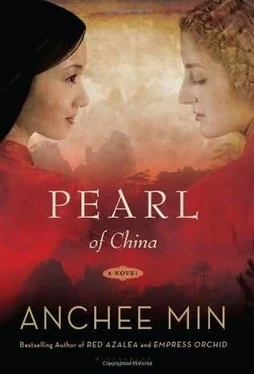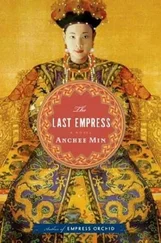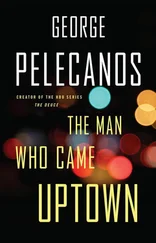Pearl tried to convince her father that by honoring Carie, the people were honoring the Christian God. But it was no use.
An idea proposed by Carpenter Chan and his friends to build a memorial gate for Carie was also dropped. In order to allow the tofu banquet to take place, Papa fabricated an emergency in a neighboring village church. It sent Absalom on his way out of Chin-kiang.
The tofu banquet lasted a week. It was held in Carie’s name. It symbolized her thanks to all who came to help her complete the transition from one life to another.
People traveled long distances to attend the ceremony. Staying up all night, I helped Lilac soak and cook the soybeans. We ground the beans and made a variety of tofu dishes, including tofu chicken, tofu duck, tofu fish, tofu ham, tofu bread, and a big tofu cake.
Pearl received families dressed in traditional mourning costume, white from head to toe. The white cotton robes were matched with white hats pinned with white flowers and white shoe covers. Pearl had no idea that her mother had so many friends.
I was called the Other Pearl because Carie, in many ways, had adopted me. I sang the crying tune with the crowd. It was Chin-kiang’s tradition to mourn this way. The tune asked the gods to hear our complaints for taking Carie away too soon.
Carpenter Chan and his crew built makeshift gates that guided the crowd to Carie’s grave. Wood carvings of protective gods stood on top of each gate. Every gate had its own title, which stood as a symbol of blessing for Carie’s next life.
The first gate was titled Sleeping Seeds, which stood for winter; the second was Flower Buds, which meant spring; the third was In Full Blossom, representing summer; and the last gate, Harvest and Fruits, was for the fall. Carie was assured all four seasons in her next life.
As people passed through the gates they kowtowed. Children were told to beg the gods to guard Carie’s spirit. The Wan-Wan Tunes troupe played The Celebration and the mourners entertained gods of the universe. First was the god of death, who was believed to have ordered Carie’s departure from earth. He was entertained to make sure no mistakes had been made. Next were the demons that were believed to have escorted Carie. They were asked to “be gentle with the sorrowful spirit.” Third was the Heavenly Judge, who was in charge of counting Carie’s virtues and deciding her future. The message from the mourners to him was “Please be fair and kind.” Food and wine were offered to this god to assure a receptive mood.
Pearl was grateful that the local people thought to honor her mother with their ancient traditions. She participated in the piety ceremony, where she lit incense at Carie’s altar and prayed for the comfort of her mother’s spirit.
I asked Pearl where her husband was.
“Lossing is an American…” Pearl said. “And he has been very busy.”
I sensed she was upset.
“Lossing should have been here for you, if for no other reason.”
Pearl appeared hurt, although she explained, “I told him that he didn’t have to come if he was busy.”
“Pearl.” I made her look at me. “What is going on?”
Reluctantly, she replied, “Lossing complains that I am too demanding. He didn’t even think that I should come. He wanted me to stay in Nanking and take care of Carol.”
I shook my head.
“Carol is not getting better…” Pearl broke down. “I don’t want to believe what I see. But I am forced to. My daughter doesn’t talk and doesn’t respond to me. I have tried to teach her, but I am not reaching her… Lossing thinks it is my fault. And I think it’s my fault, too… I didn’t make Carol right in the first place. I don’t know what happened… Lossing is devastated. He can’t believe that she is his child. He left us last week, again, for a field trip in the north. Maybe it’s for the better-we don’t have to fight endlessly… Lossing will be gone for three months, maybe longer. I am afraid that he won’t return…”
“Lossing will return,” I comforted her. “He is Carol’s father. Give him time.”
“You don’t know the truth of our marriage, Willow. It hasn’t been working. Carol’s trouble is like salt on top of a wound. I thought I could take it. I don’t mind Lossing taking his anger out on me. But when he is mean to Carol, I…”
I let her sob on my shoulder.
“I can’t see myself living with him anymore,” she continued. “Carol doesn’t know what is wrong. She doesn’t deserve her father’s cruelty.”
“You need Lossing at this moment,” I said.
She agreed. “We need money to pay Carol’s doctors in America.”
Pearl ’s searching for Carol’s cure would eventually end. After years of disappointment, she would accept her fate. Pickled in sorrow, she began to imagine her own accidental death and contemplated suicide. I wrote her as much as I could.
Pearl told me that writing had become her salvation. It was the only way that she could take her mind off her daughter. If she couldn’t fix Carol, she could fix the characters in her novels.
After Carie’s death, Absalom traveled deep inland, sometimes a year at a time. As a result, more Christian churches were established. Carpenter Chan followed Absalom. He brought his wife and children with him.
Papa continued to be responsible for the Chin-kiang Christian community. His recent achievements included the conversion of the richest man in Chin-kiang, the head of the famous Chin-kiang Vinegar Company. Receiving handsome contributions, Papa transferred the money to Absalom, who in turn funded Christian schools inland.
Besides being publisher and editor of the newspaper, I was also in charge of the Chin-kiang Christian Girls’ Middle School. I followed Carie’s original curriculum and added Chinese history, science, and mathematics.
I wasn’t aware of the Chin-kiang Independent’s popularity until I received a letter from the Nanking Daily offering me a position as its editor.
I accepted the offer without hesitation because I had always admired the Nanking Daily. The paper was as prestigious as the Shanghai Daily, and its readership reached all of southern China. The offer would expand my horizons and also enable me to reunite with Pearl.
As if our childhood had returned, Pearl welcomed me to Nanking. We climbed the famous Purple Mountain together. Beneath our feet spread the city of Nanking. Temples, shrines, and the tomb of the fourteenth-century Ming emperor were scattered over the mountainside. The city had a twenty-four-mile-long wall and nine elaborately decorated, forty-foot-high gates. Running beside the city was the Yangtze River, which flowed on to Chin-kiang.
“I love the winding cobbled streets and the little shops glimmering with candlelight at night,” Pearl said. “I adore the flickering oil lamps that light the streets. I can’t help but imagine the family life of the people within these ancient walls.”
After I settled into my small apartment near the newspaper office, we began to visit each other regularly. Pearl lived in a three-room brick house. It was modest compared to the residences of other foreigners. The house belonged to the university compound occupied mostly by faculty. Lossing had been living here for four years now. Like Carie, Pearl tended to her garden. Besides roses and camellias, there were tomatoes and cabbages.
I was pleased to see Carol again, although I was sad to witness her condition. She was five years old. I tried to communicate with her, but she did not respond. I also saw Lossing. His skin was whiter than I had remembered. He taught in the classroom, where he felt that he was wasting his time. He longed to return to the field.
“Please, Willow, stay for dinner,” Pearl insisted one evening. “It will be no trouble for me at all. The servants do everything for three bags of rice at the end of the month. It makes me feel guilty even though almost every white family in the city enjoys such help. My chef is from Yangchow, but he can also cook Peking and Cantonese style.”
Читать дальше












